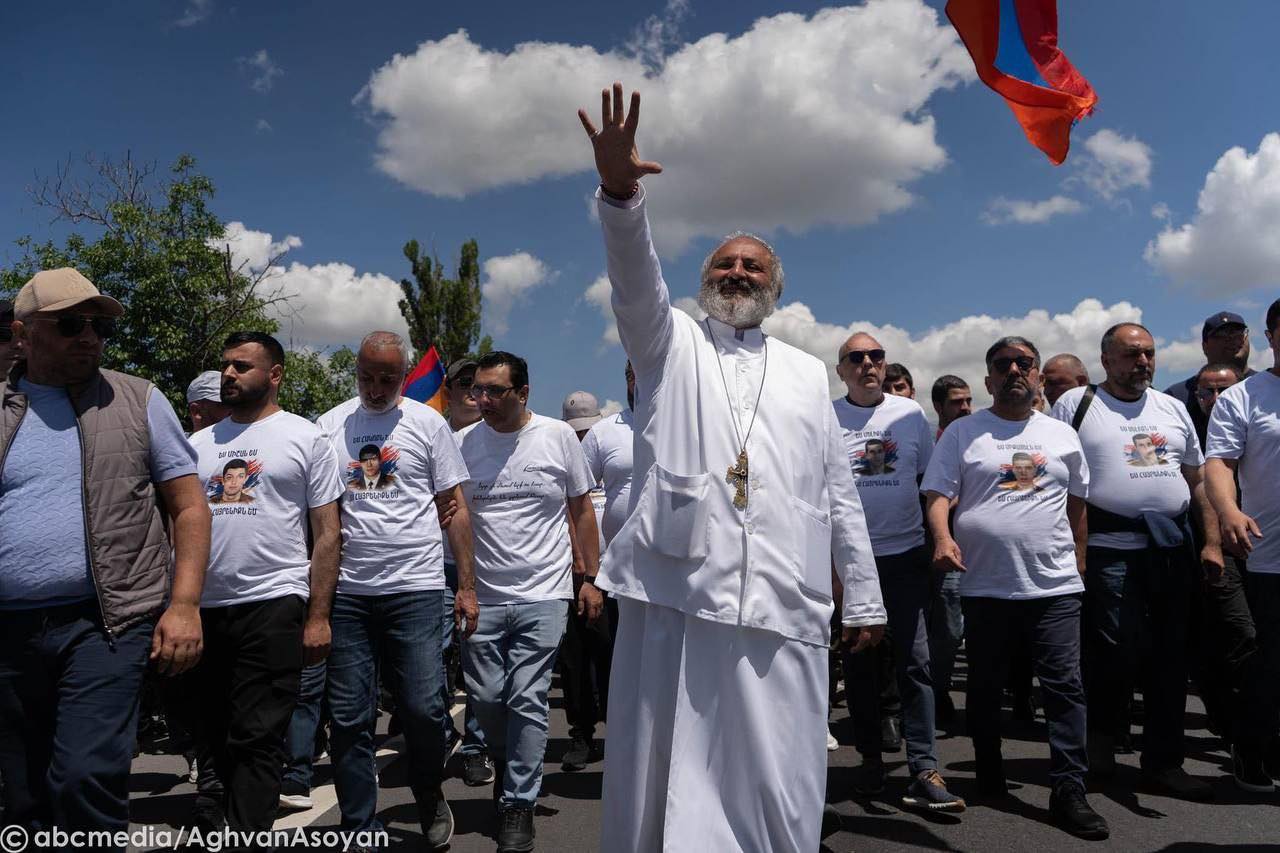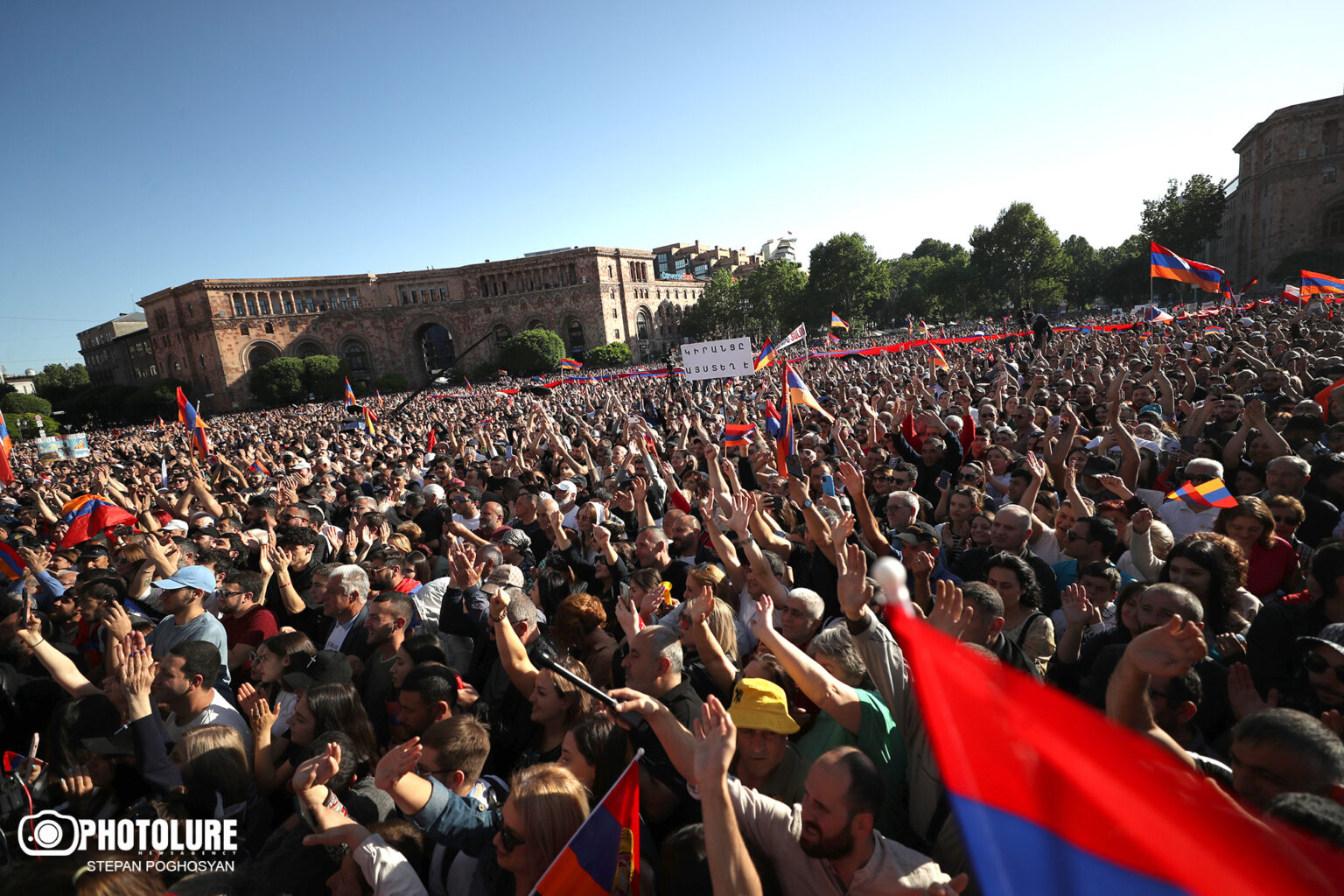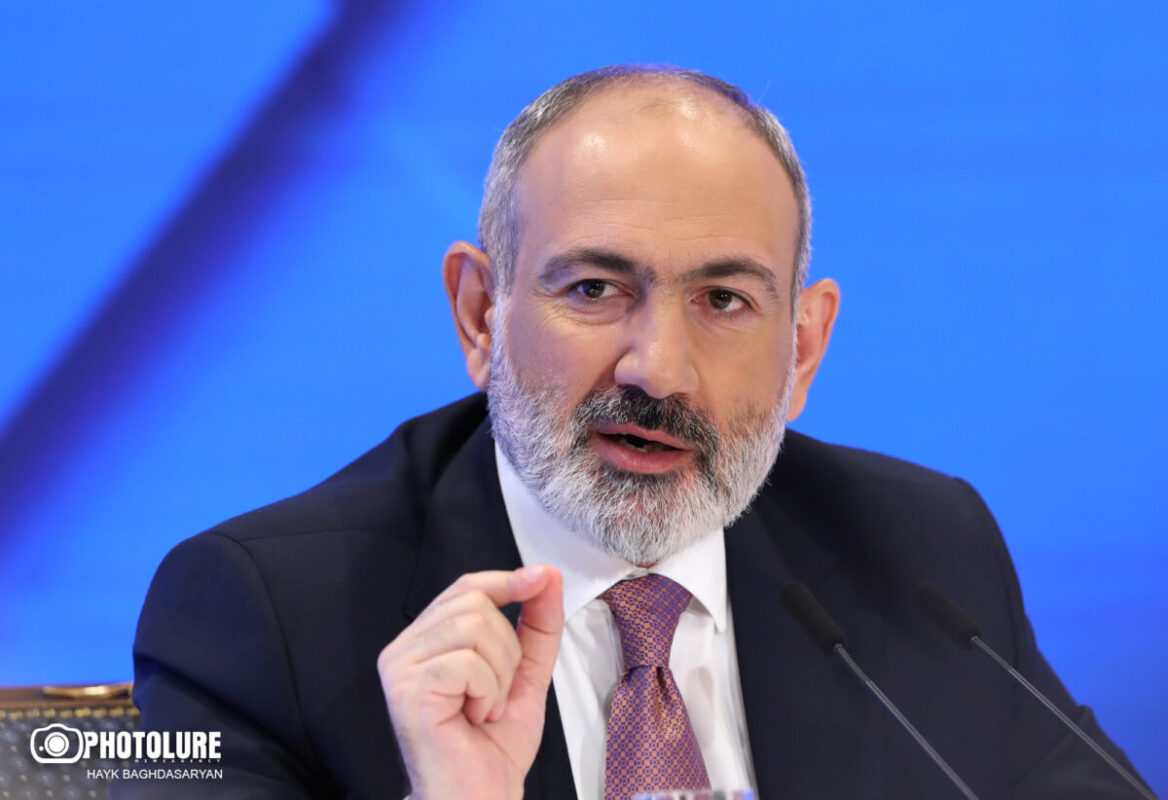Clerical uprising or political interference in the country: what is happening in Yerevan? Opinions
Opinions on Galstanyan`s movement in Armenia
In Yerevan, disobedience actions continue. The movement “Tavush for the Sake of the Homeland,” initially aimed at stopping the “illegal demarcation of borders,” is now demanding the resignation of Armenian prime minister Nikol Pashinyan.
The movement is led by Archbishop Bagrat Galstanyan, the head of the Tavush Diocese. The fact that a high-ranking clergyman is intervening in the country’s political life is actively discussed by politicians and analysts. They question whether the catholicos supports the mission undertaken by the archbishop. Most believe that the involvement of the Armenian Apostolic Church in politics is unacceptable.
Catholicos Karekin II has not yet expressed his personal opinion. Before the protests began in Yerevan, the Supreme Spiritual Council issued a statement emphasizing that “the church does not claim” political power in Armenia.
The “Tavush for the Homeland” movement started a march from the Tavush region to Yerevan in protest against the ongoing process of border demarcation and delimitation with Azerbaijan in northern Armenia. The movement participants arrived in Yerevan on May 9. Here, they changed their initial demand to stop the demarcation/delimitation process. Now, they are demanding the resignation of the prime minister.
The movement organizes acts of disobedience, marches, and rallies. At the same time, consultations are ongoing with opposition factions in parliament about initiating the impeachment process against Pashinyan. However, the protesters have not yet announced their candidate for the prime minister’s post.
To initiate the impeachment process in parliament, the signatures of at least 36 deputies are required. Opposition factions “Hayastan” (29 deputies) and “I Have Honor” (six deputies) are one signature short. Additionally, they will need at least 54 votes in the National Assembly to pass the desired decision. Armenian analysts believe that the opposition will not be able to persuade deputies from the ruling faction to join them.
Details of the statement issued by the Supreme Spiritual Council, what the leader of the protest movement, Archbishop Bagrat Galstanyan, said about the possibility of assuming the post of prime minister himself, comments from Nikol Pashinyan on the situation, as well as the opinions of Armenian politicians.
- “Behind the movement against the borders demarcation – Russia and the 5th column of Armenia.” Opinion
- “Baku used the issue of returning four villages as a trump card,” says Pashinyan
- Territory in exchange for peace: Will Azerbaijan refrain from a new war?
“Clergymen submitted an application to participate in politics”
During his latest press conference, the prime minister of Armenia spoke about “the application submitted by some clergymen” to intervene in the country’s political life. According to Nikol Pashinyan, this indicates that “they acknowledge their incompetence or inability to exercise spiritual leadership.” He also stated that the senior clergy “failed in their mission to connect people with God”:
“In conversations with them, you can learn a lot about imports, exports, customs procedures, but you won’t hear anything about the Bible, the New Testament, and the Gospels, or religious matters. I am not surprised that they are making a political statement because they have nothing to do in the spiritual sphere. I listen to some people and understand that perhaps they have not read the Bible from beginning to end.“
Pashinyan stated: “We are not in conflict with the church. Is the church in conflict with us? It should answer this question.”
Concluding the discussion on this topic, the prime minister emphasized that the ultimate authority in Armenia lies with the people:
“And I am convinced that the people want peace. But some have come out and openly preach war. In whose name are they preaching war?“
Before the start of the demarcation and delimitation process in the Tavush region, Nikol Pashinyan stated that if border clarification did not begin immediately, war with Azerbaijan would ensue.
“My struggle is not for the position of prime minister”
The leader of the “Tavush in the Name of the Homeland” movement, Archbishop Bagrat Galstanyan, stated in the early days of the protest that his struggle is not at all “for the position of prime minister.” He emphasized that his rank is higher.
From 2003 to 2015, Galstanyan was the primate of the Canadian diocese of the Armenian Apostolic Church. He holds dual citizenship – of Canada and Armenia. According to the Armenian constitution, this makes it impossible for him to be elected prime minister of Armenia.
However, recently the archbishop made the following statement:
“Now, if the people decide to amend the constitution and say that a person with dual citizenship can hold it, then what concern is it to you? If the people desire it and if it is God’s will, if the Patriarch of Armenia blesses it, then who am I to refuse?“
“This is a righteous uprising”
On May 7, the Supreme Spiritual Council announced that the reason for the protests and the start of the civil movement “Tavush in the Name of the Homeland” was the situation that had arisen. In their statement, council members emphasized that the unacceptable position of the Armenian authorities in negotiations with Azerbaijan was to blame:
“The territories of the Tavush region are unilaterally being transferred to Azerbaijan. We consider the actions in the border Tavush region without comprehensive and guaranteed solutions, which are called delimitation and demarcation, to be very dangerous and to create new threats to our people.”
The statement also reads that “in response to the existing existential threats, the clergy of the Tavush diocese, led by its leader, true to their spiritual mission and calling,” cannot remain indifferent to the concerns and needs of the people entrusted to their care:
“We call on the authorities to comply with the legitimate demands of the people and to be guided in processes aimed at peace by approaches that will not increase security threats, deepen the sense of vulnerability and uncertainty in our society.
Emphasizing the importance of delimitation and demarcation processes, we at the same time affirm that these works must be carried out in conditions of the exclusion of war, the return of occupied territories from Armenia, the presence of guarantees for a safe and peaceful life of the population.
The Church, not claiming political power, must continue to make efforts with a sense of historical responsibility for strengthening the Homeland and statehood, protecting the identity and rights of our people, strengthening unity and brotherhood in national life, contributing to the establishment and strengthening of peace in the region.”
Opinions on Galstanyan`s movement in Armenia
Comments
Styopa Safaryan, Head of Armenian Institute of International and Security Affairs:
“We may joke about this squabble with an external instigator, but when the church crosses red lines, it’s no laughing matter. According to the Armenian constitution, the church has no right to engage in politics.
It is now undisputed that the leader of the movement, donning ecclesiastical robes and wielding a cross, blessed by the highest clergy, is spearheading the political process in the heart of the capital, making statements on behalf of the Catholicos, issuing ultimatums, and calling for political disobedience. And yet, there have been no statements from the Catholicos or decisions regarding the stripping of his ecclesiastical rank. It appears that the Catholicos is taking responsibility for all of this.
Since lower-ranking clergy, for some reason, are restrained from addressing internal issues, the state itself must support constitutional order and assist faithful clergymen in saving our church and reforming it.
We are witnessing the consequences of delayed, failed reforms [of the government] in all spheres, including the spiritual one, where thousands of citizens, manipulated by their discontent, may be drawn into the whirlpool of legal nihilism, led by the Catholicos and a well-known group of clergy. I could not convince myself before, but now it is obvious that the Catholicos must voluntarily relinquish his rank.”
Arman Babajanyan, chairman of the “In the Name of the Republic” party:
“Failing to accumulate the internal reserves necessary to seize power, they have decided to create legitimate grounds for Azerbaijan’s attack on Armenia.
What I previously warned about has now been proven true: certain leaders, disguised under the guise of religious authority, along with individuals linked to Russian intelligence networks, diplomats, and political allies of [former president] Kocharyan, are determined to sabotage the signing of a crucial demarcation protocol between Armenia and Azerbaijan on May 15. This protocol needs to be approved by the National Assembly.
If the ‘sacred’ movement somehow succeeds in achieving its goal, we can be sure that Azerbaijan, at Russia’s instigation, will obtain the legal right to attack Armenia from any point on the border. Azerbaijan will justify its actions by Armenia’s unilateral withdrawal from the widely supported process of border demarcation based on the Alma-Ata Declaration.
There is no doubt that this group, using any means necessary, has decided to achieve its goal – the liquidation of Armenian statehood from within. I hope that the church and the Supreme Patriarch understand their responsibility to the state and the people and take the necessary steps to smother this goal in its cradle.”
David Stepanyan, political analyst:
“The ‘fifth column,’ long discredited and mired in deep political mud, is dragging our church into this dirty swamp in the form of individual clergymen, thereby undermining and compromising one of the important pillars of our country.
There are many political parties, but only one church. Cleansing the church of political filth will be very difficult. And the ‘fifth column’ has long been accustomed to the swamp and mud. We need to think, think hard [before taking any action].”
Stepan Danielyan, political analyst:
“The conspiracy of 2018 was a belated ‘revolution’ that brought only destruction, yet the circles of pseudo-artists and intellectuals in Armenia continue to cling to the liberalism of the past, for the sake of which they sacrificed part of their homeland, cast doubt on the existence of another part, and now fear the establishment of a theocracy.
Establishing a theocracy in Armenia is impossible because our church lacks intellectual, material, energetic, and, frankly speaking, moral resources for establishing religious rule.
The temporary involvement of the church in politics is merely a symbolic act, declaring that the period of liberalism in Armenia is over, and the era of progressive conservatism has begun, which corresponds to the modern stage of civilization. The rest is not the church’s business; it should happen in the political field.”
Boris Navasardyan, political analyst:
“I am not against any clergyman deciding to engage in politics. But the mixing of these roles is unacceptable. A specific individual demanding the resignation of the prime minister has made a choice. Consequently, he should be perceived as a politician.
And if he talks about blessings, periodically repeats that Etchmiadzin [the administrative center of the Armenian Apostolic Church, the city where the throne of the Catholicos of All Armenians is located] has given its blessing, yes, Etchmiadzin can bless any clergyman to change his status. And that’s normal.
But in that case, we should consider all of this as an act of implementing political programs. Otherwise, it is difficult to perceive what is happening. I think that the mixing of these statuses and roles cannot be considered normal in any country.”






















